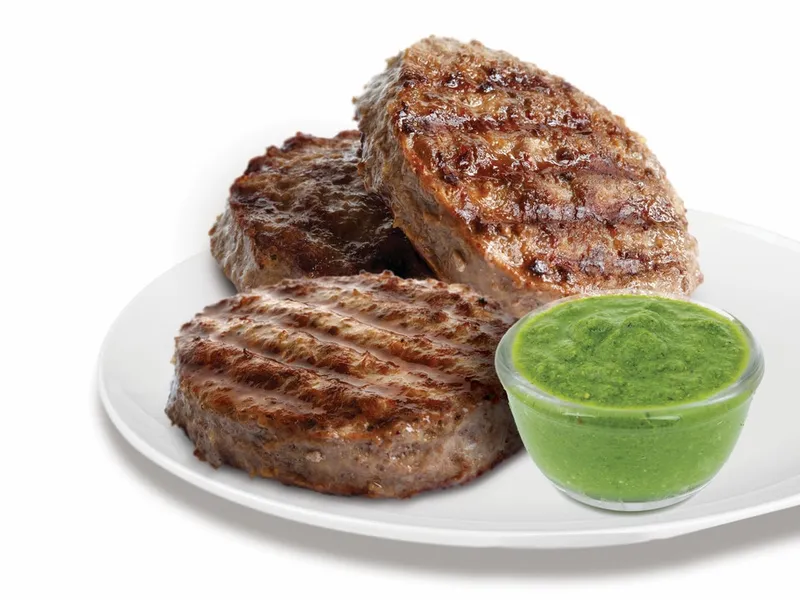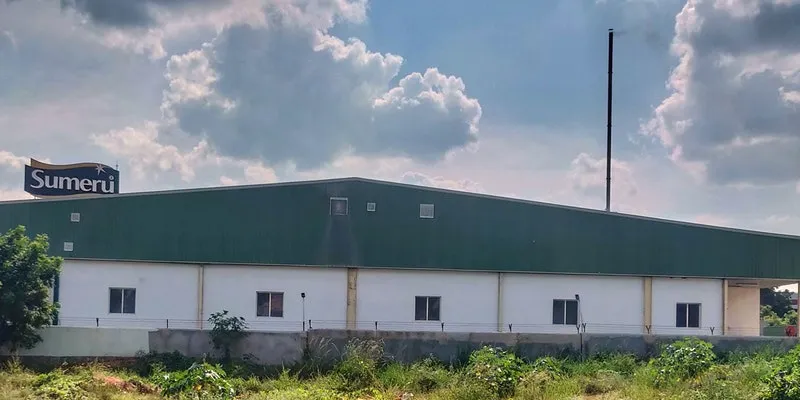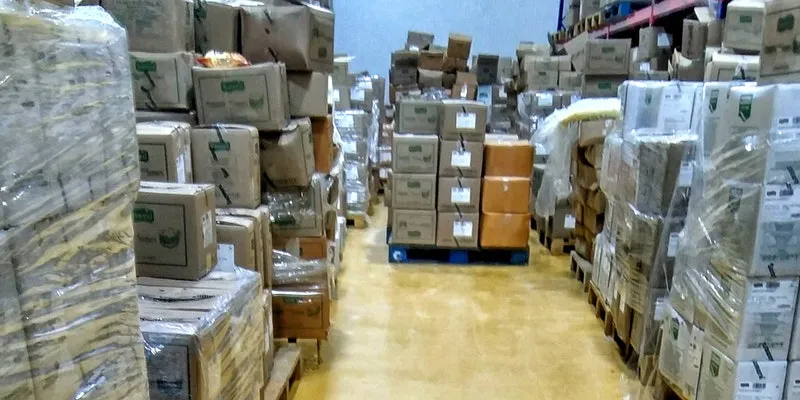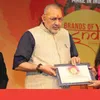How Kochi-based Sumeru Foods made Rs 70 Cr turnover by ensuring frozen foods remain fresh and healthy
In an exclusive interaction with SMBStory, Sumeru Foods CEO Mithun Appaiah explains how Individual Quick Freezing technology has helped convince customers that frozen foods can be healthy too.
Indian food is usually associated with authentic spices, diversity, rich flavours, and unique methods of preparation. But doing justice to Indian food has historically meant spending a lot of time in the kitchen. As the newer generations are spending less time in cooking, frozen foods have emerged as a quick and easy alternative to elaborate cooking.
Over the past few years, India’s frozen food industry has evolved from featuring basic frozen vegetables and french fries to boasting a wide range of products. It is common to see frozen fruits, vegetables, meats, snacks, and full meals at the local supermarket.
Brands such as Innovative Foods, McCain Foods, Venky’s, Godrej Tyson Foods, and a few others have been instrumental in developing India’s frozen food market.
But these brands still face a fundamental challenge: consumers believe that frozen foods are unhealthy.
Started in Kochi in 1989, Innovative Foods (which runs the Sumeru Foods brand) is trying to convince consumers otherwise. Besides not adding any preservatives and colours, Sumeru uses an Individual Quick Freezing (IQF) technology. Here, each piece of produce is frozen individually through a process that deactivates the enzymes in the food.
What exactly does this mean?
Mithun Appaiah, CEO, Innovative Foods, tells SMBStory:
“IQF or flash-freezing, deactivates enzymes and prevents the formation of large ice crystals in the cells of the produce. This preserves the freshness, taste, texture, and nutrients. And since each piece is individually frozen, they do not cohere, and the final product is not frozen into a solid block.”

Mithun Appaiah, CEO, Innovative Foods
In its bid to become India’s largest frozen food brand, the Rs 70-crore turnover company is using this method to challenge the notion that frozen food is unhealthy. And Sumeru’s timing could be just right -various factors such as changing lifestyles, increasing disposable incomes, deeper retail presence by organised players, and more, are turning the attention towards frozen foods.
In an exclusive interaction with SMBStory, Mithun explains what Sumeru Foods is all about, more about IQF, and the brand’s plans for the future.
Edited excerpts from the interview:
SMBStory: How did Innovative Foods start?
Mithun Appaiah: We do not have any specific founders as Innovative Foods was started as a clearing and forwarding agent for Hindustan Lever Limited’s ice-cream business. From 1989 onwards, the company was promoted by Amalgam Foods Ltd (AFL) in association with multinationals like Mitsubishi Corporation, Saudi Fisheries Company, Gourmet Club Corp, Ristic GmbH, etc.
In the late 90s, the concept of frozen foods business in domestic retail came up. That was the time the promoters were aggressive in seafood exports through value-added frozen seafood in the US and the EU markets. It was felt that the retail trends would follow in India. Hence, one unit in Kochi was dedicated to domestic business. We started with the brand named ‘Snowboy’, but this had trademark issues. So, we switched to Sumeru, which is a mythological mountain standing at the centre of four continents.
SMBS: After starting Sumeru, how did the company diversify into different product categories?
MA: All our products are convenient food solutions and absolutely safe to customers. The products are free of preservatives and added colours. Raw materials are procured from FSMS certified companies and produced as per HACCP norms in FSSC 22000 certified factories.
This way, we started with seafood (IQF prawns, fish fillet, seer steaks, breaded fish fillet, breaded fish finger) and with frozen vegetables (green peas, baby corn, etc). Then, this was followed by a range of parathas which were in demand for exports. In order to distribute effectively, the promoters also started a cold chain company at the national level so that product quality was controlled upto the retail point by company personnel.
Then, based on market feedback, the marketing team and the company R&D together planned new products. Thus, we added snack solutions such as burger patties nuggets, cutlets, spring rolls, and samosas, followed by whole range of sausages and cold cuts in poultry and pork.

Sumeru Foods' Mutton Nawabi
SMBS: How does IQF help in keeping all these frozen foods fresh?
MA: One of the biggest advantages that IQF offers is that the food items stay separate after they’ve been frozen. This is a great plus to the consumer. We use the most advanced IQF technology to freeze our products.
Fresh vegetables normally produce enzymes that cause the loss of colour, flavour and nutrients. Simple freezing leads to the formation of large ice crystals in the cells of the product, thereby leading to loss of nutrients, texture and taste.
IQF freezes the products individually and deactivates the enzymes. This ensures the produce remains as fresh and nutritious as it was initially. The process works the same way in the case of meat and seafood. Our strict quality measures ensure food is frozen under highly-regulated and quality-controlled environments. This kind of technique keeps packed food fresh and healthy till the time it is defrosted and consumed.
SMBS: Does all manufacturing happen in Kochi? What are some of your unique manufacturing strategies?
MA: We have two state-of-the-art plants, one at Kochi (Kerala) and the other at Chittoor (Andhra Pradesh). Our plant in Chittoor manufactures only vegetarian products while the meat, sea food, and few other products are manufactured in Kochi.
Both the factories are FSSC 22000 and HALAL certified. FSSC 22000 is a food safety certification system fully-recognised by the Global Food Safety Initiative (GSFI) and it demonstrates that the company has a robust Food Safety Management System in place that meets the requirements of our customers.

Sumeru Foods' Kochi manufacturing facility
Both the factories are equipped with Quality Assurance Labs. As in every field, technology in this space is also evolving. As a company obsessed with quality and with a vision to offer the best to the consumer, we are keenly watching technological developments and are open to embracing newer technologies and practices,. We have also partnered with some co-packers as strategic partners who ensure our products reach the market in the best possible manner.
SMBS: What is the retail model?
MA: Our core business lies in the area of import, export, trading, and manufacturing of processed and frozen food. Our retail model is simple, like any other FMCG player, but in a way it is also complex because it is flexible and made to fit the requirement. For example, we have the usual FMCG model of Distributor-to-Retailer in many cities of the country. At the same time, in large cities like Bengaluru and Chennai, we distribute directly to retail outlets without any distributor in between.
We also supply customised products to various leading food service companies in India. We have retailed the multi-category product portfolio across the country. The company also has a presence in the Indian ethnic export market such as the USA, Canada, and UK.
We also launched first-of-its-kind of products curated by Michelin Star Chef Alfred Prasad, and are launching products with his expertise in recipe development. We also recently tied up with cloud kitchens, which is also a first by any packaged food player in the country.
This way, our flexibility and constant innovation gives us an edge over our competition such as ITC, IFB, Godrej Yummys, McCain, and Venky’s.

Inside the Sumeru Foods warehouse
SMBS: How is the company using digital platforms to market the products?
MA: Our target audience is every household. Digital is the way forward because most of our audience is on various digital platforms and hence reaching out to the consumers via their preferred channels helps. We are using digital in spreading awareness about the brand and letting people know about our range of products.
Through digital, we educate the audience that our products don’t have any added preservatives and that it’s safe for everyone to consume. New products announcements are also more noticed on these channels. We believe in acquiring followers who are true to us in terms of habit and love to keep the brand engagement high.
SMBS: What are the future plans for the company?
MA: Once, Sumeru faced a tough moment when the US declared anti-dumping duty on Indian shrimps while it had a dozen containers in the sea enroute to the US. While difficult to predict these kind of challenges, we intend to become the largest frozen food brand, become known for the best innovations, and break the clutter in the category.
Having seen the popularity of momos in India, we plan to launch a range of vegetarian and non-vegetarian momos. This way, as a brand with 30 years of experience, we will drive the category leadership position in the segment. We are also working on some disruptive channel ideas and looking at global market expansion which has a huge potential for Indian cuisine.
Our plans are backed with the proof of value shown in the growth of our retail sales. As Indian customers move towards the frozen food industry gradually, Sumeru can become even more prominent in the frozen food industry.









